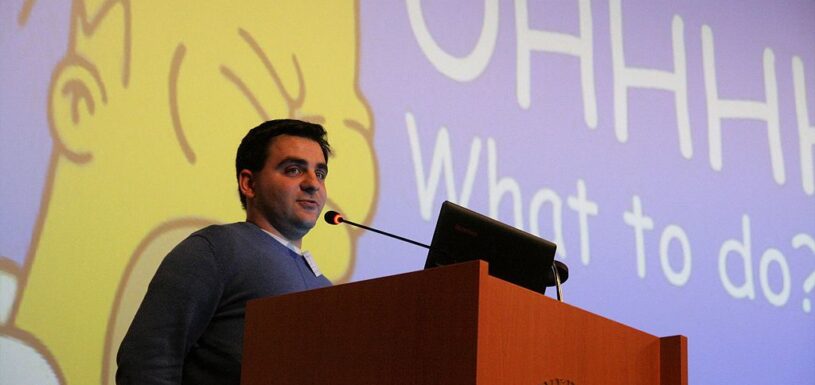Wikimedia Europe monitors access to free knowledge in Brussels
Geplaatst op 1 april 2024By Dimitar Dimitrov, Policy Director Wikimedia Europe
Wikimedia Europe
Wikimedia Europe is an association of European Wikimedia affiliates. Our primary task is to monitor EU legislation that would have an impact on free knowledge in general and Wikimedia projects in particular. We advocate for changes that improve access to and quality of knowledge and quite often need to explain to lawmakers how some proposals tailored to regulate large, for-profit platforms could harm collaborative, non-commercial projects like ours.
The European Parliament elections are weeks away. In practice this means that the latest legislative files are being wrapped up, or not, and most MEPs are going campaigning. Here are our top picks for you:
The European Media Freedom Act was adopted by a European Parliament plenary vote on 13 March 2024 and a Council vote on 26 March 2024. It introduces measures such as some protections for journalists against spying on them and rules on spending public service announcement funds. As it also regulates how online platforms can moderate content by media publishers, Wikimedia engaged in this conversation. The final result is that the Wikimedia Foundation will have to comply with some bureaucratic measures (which are partially also foreseen by the DSA), the actual content moderation obligations are tied to business-to-business services, so our projects likely won’t be affected.
As a side engagement, Wikimedia Europe also co-signed a few letters on the protection of journalists and their sources. We deemed it important to add a voice for the protection of sources and journalism, as we rely on them.
The Cyber Resilience Act was wrapped up with a final deal between the Parliament and the Council. It wants to improve the security of content products (e.g. your smart taster or AI powered fridge) by creating obligations on developers, manufacturers or vendors of software and products. The originally proposed text would have made it much more complicated for individuals and not-for-profits to participate in collaborative development of open source software projects, which is why we were involved. The final result comes with a string of carve-outs. Terribly written legislation, but it won’t hurt free and open source software projects at least. See our blog post for details.
The Anti-SLAPP (Strategic Lawsuits Against Public Participation) Directive has been adopted. It introduces minimum common rules “by developing a common EU understanding on what constitutes a SLAPP and by introducing procedural safeguards”. As you may be aware, our projects and communities are facing SLAPP cases across Europe, including in Portugal and Estonia, to name just two.
Overall, the agreement can be considered satisfactory as it introduces some common safeguards that until now the EU lacked. There are nonetheless a few aspects that could and should be improved when Member States transpose this into national law (they have two years). We want to work towards better protections, such as an early dismissal mechanism, the possibility to introduce the right to ask for the compensation of damages and how cross-border cases are established. We will prepare “transposition documentation” and work with interested communities across the continent.
One file that is increasingly unlikely to cross the legislative finish line is the proposal on Combatting Child Sexual Abuse Online. The original proposal demands online services to scan all private messages against a CSAM database to be maintained by Europol in The Hague. The European Parliament and Member States such as Germany and Austria see this as mass surveillance and the de facto abolishing of end-to-end encryption. Other Member States and the responsible Commissioner Johannsson see this as a necessary and belated measure to address the issue. The Belgian Presidency has made a last ditch effort to bridge the gap by proposing new safeguards. The EP negotiator, MEP Zaralejos (EPP ES), has on his side proposed to scan only messages or specific accounts after a judicial approval (similar to phone tapping in most countries). Still, the parties of this conversation don’t seem to be getting any closer.



